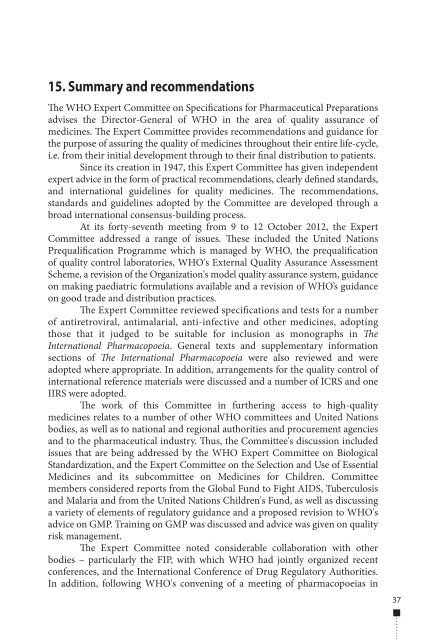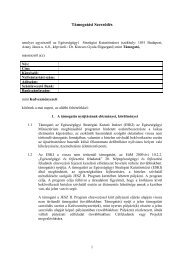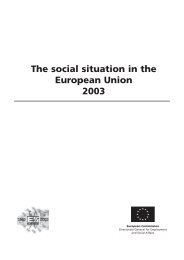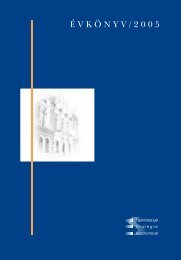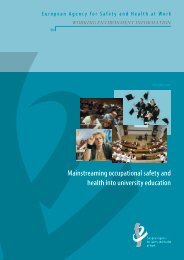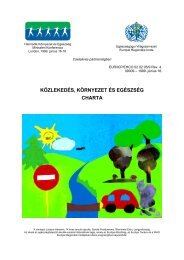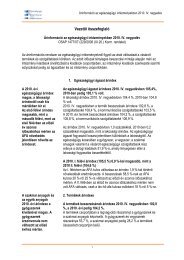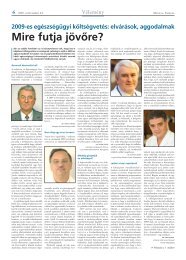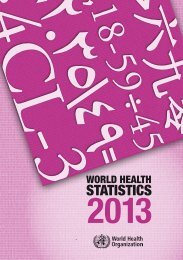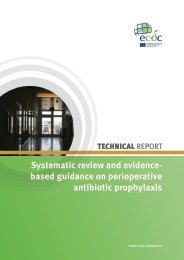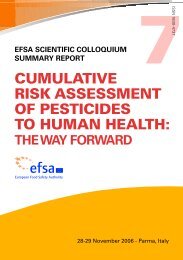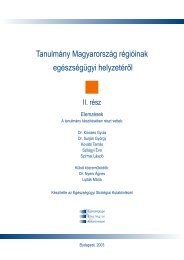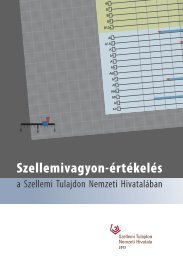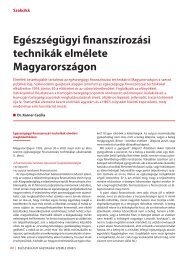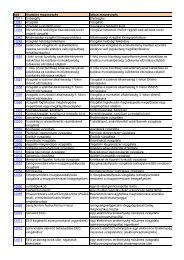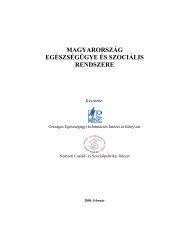WHO Technical Report Series, No. 981 - World Health Organization
WHO Technical Report Series, No. 981 - World Health Organization
WHO Technical Report Series, No. 981 - World Health Organization
Create successful ePaper yourself
Turn your PDF publications into a flip-book with our unique Google optimized e-Paper software.
15. Summary and recommendations<br />
The <strong>WHO</strong> Expert Committee on Specifications for Pharmaceutical Preparations<br />
advises the Director-General of <strong>WHO</strong> in the area of quality assurance of<br />
medicines. The Expert Committee provides recommendations and guidance for<br />
the purpose of assuring the quality of medicines throughout their entire life-cycle,<br />
i.e. from their initial development through to their final distribution to patients.<br />
Since its creation in 1947, this Expert Committee has given independent<br />
expert advice in the form of practical recommendations, clearly defined standards,<br />
and international guidelines for quality medicines. The recommendations,<br />
standards and guidelines adopted by the Committee are developed through a<br />
broad international consensus-building process.<br />
At its forty-seventh meeting from 9 to 12 October 2012, the Expert<br />
Committee addressed a range of issues. These included the United Nations<br />
Prequalification Programme which is managed by <strong>WHO</strong>, the prequalification<br />
of quality control laboratories, <strong>WHO</strong>'s External Quality Assurance Assessment<br />
Scheme, a revision of the <strong>Organization</strong>'s model quality assurance system, guidance<br />
on making paediatric formulations available and a revision of <strong>WHO</strong>’s guidance<br />
on good trade and distribution practices.<br />
The Expert Committee reviewed specifications and tests for a number<br />
of antiretroviral, antimalarial, anti-infective and other medicines, adopting<br />
those that it judged to be suitable for inclusion as monographs in The<br />
International Pharmacopoeia. General texts and supplementary information<br />
sections of The International Pharmacopoeia were also reviewed and were<br />
adopted where appropriate. In addition, arrangements for the quality control of<br />
international reference materials were discussed and a number of ICRS and one<br />
IIRS were adopted.<br />
The work of this Committee in furthering access to high-quality<br />
medicines relates to a number of other <strong>WHO</strong> committees and United Nations<br />
bodies, as well as to national and regional authorities and procurement agencies<br />
and to the pharmaceutical industry. Thus, the Committee's discussion included<br />
issues that are being addressed by the <strong>WHO</strong> Expert Committee on Biological<br />
Standardization, and the Expert Committee on the Selection and Use of Essential<br />
Medicines and its subcommittee on Medicines for Children. Committee<br />
members considered reports from the Global Fund to Fight AIDS, Tuberculosis<br />
and Malaria and from the United Nations Children's Fund, as well as discussing<br />
a variety of elements of regulatory guidance and a proposed revision to <strong>WHO</strong>'s<br />
advice on GMP. Training on GMP was discussed and advice was given on quality<br />
risk management.<br />
The Expert Committee noted considerable collaboration with other<br />
bodies – particularly the FIP, with which <strong>WHO</strong> had jointly organized recent<br />
conferences, and the International Conference of Drug Regulatory Authorities.<br />
In addition, following <strong>WHO</strong>'s convening of a meeting of pharmacopoeias in<br />
37


